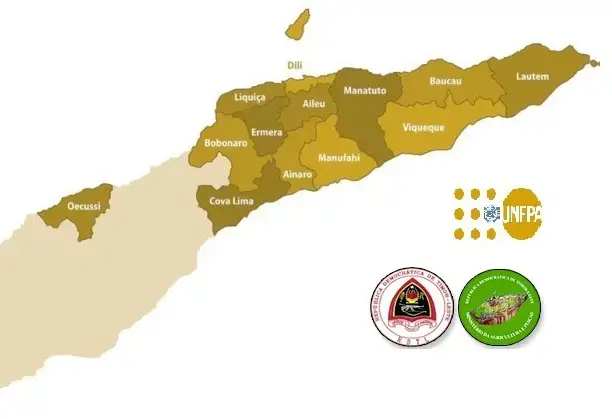Midwives: health heroes for women, adolescent girls and newborns
International Day of the Midwife 2016
Statement by Dr. Babatunde Osotimehin, Executive Director, UNFPA, The United Nations Population Fund
5 May 2016
On this International Day of the Midwife, UNFPA, the United Nations Population Fund, salutes the contribution of midwives to saving the lives of women, adolescent girls and newborns, sometimes under very difficult circumstances, in hard-to-reach communities, in humanitarian emergencies, and in fragile and conflict-torn countries.
Well-trained and supported midwives working in communities are uniquely positioned to provide the compassionate, respectful and culturally sensitive care a woman needs during pregnancy and childbirth. Midwifery is equally important for newborns during the critical first month of life, and is a significant contribution to sexual and reproductive health in general.
Midwives are, therefore, essential to achieving the Sustainable Development Goals. In the past 25 years, the world has almost halved maternal deaths, but every year, some 300,000 women still die during pregnancy and childbirth, and almost 3 million babies do not survive their first four weeks of life. A vast majority of these largely preventable deaths take place in developing and crisis-affected countries. If deployed in larger numbers, trained midwives could avert approximately two thirds of these deaths. Significant investments in midwifery are essential if the world is to achieve its ambitious goals of reducing maternal and newborn deaths.
UNFPA is helping train and support thousands of midwives in more than 100 countries. A recent survey estimated that in 57 of these countries, UNFPA has trained 66,000 midwives over the past seven years. These critical health-care providers can help more than 11 million women to give birth safely each year, but much more needs to be done.
On this International Day of the Midwife, we at UNFPA renew our commitment to working with global partners and countries to strengthen midwifery skills and capacities. We call on countries to acclaim and reward midwives who are working in challenging and hard-to-reach areas, where their services are most needed. We also urge countries to invest in quality training, good working conditions, decent salaries, adequate workforce policies and possibilities for professional growth.
Midwives are our heroes and the backbone of sexual and reproductive health. Let us support them and the women and newborns at the heart of their care.
***
Parteira sira: heroi ba saúde feto, labarik feto no bebe foin moris sira nian
Loron Internasional ba Parteira 2016
Statementu husi Dr. Babatunde Osotimehin, Direitor Ezekutivu, UNFPA, Fundus Nasoens Unidas ba Populasaun
5 Maiu 2016
Iha Loron Internasional ba Parteira, UNFPA, Fundus Nasoens Unidas ba Populasaun, fo saudasoens ba kontribuisaun parteira sira nian hodi salva vida moris feto, labarik feto no bebé sira, dalaruma iha situasaun ne'ebé difisil tebes, asesu ba komunidade ne'ebé maka defisil, iha situasaun emerjensia, no iha nasaun sira ne'ebé maka fragil no konflitus .
Parteira sira ne'ebé treinadu no suportivu servisu iha komunidade maka hetan pozisaun ne'ebé unico tebes hodi fornese kuidadus servisu ne'ebé ho kompaisaun, respeitu no sensitivu ba kultura feto nia presiza durante isin-rua no partus. Parteira sira importante mos ba bebe foin moris durante fulan kritiku primeiru, no iha kontribuisaun signifikante ba saúde seksual no reproduktiva em jeral.
Ne'e duni parteira sira importante tebes atu atinji Objetivu Dezenvolvimentu Sustentabel. Iha tinan 25 liu ba, mundu hamenus kuaze metade mortalidade maternal, maibe kada tinan hamutuk feto 300,000 sei mate durante isin-rua no partus, no bebe besik milhaun tolu labele moris iha semana haat primeiru husi sira nia moris. Maioria idade mortalidade hirak ne'ebé bele prevene akontese iha nasaun hirak ne'ebé sei dezenvolve hela no afeitadu tamba krizi. Karik haruka numeru parteira ne'ebé maka boot, parteira ne'ebé treinadu bele prevene maizumenus um tersu husi kazu mate hirak ne'e.
UNFPA ajuda hela fo treinamentu no suporta parteira rihun ba rihun iha nasaun liu 100. Peskiza foin dadaun iha estimasaun katak iha nasaun 57, UNFPA fo treinamentu ona ba parteira 66,000 iha tinan hitu liu ba. Pesoal saúde importante sira ne'e bele ajuda feto liu milhaun 11 atu partus ho seguru kada tinan, maibe sei iha tan buat barak maka sei presiza halo.
Iha okaziaun Loron Internasional ba Parteira sira, ami iha UNFPA renova fila fali ami nia komitmentu atu servisu hamutuk ho parseiru global sira no nasaun sira atu haforsa abilidade no kapasidade parteira sira nian. Ami apela ba nasaun sira atu apresia no fo insentivu ba parteira sira ne'ebé servisu iha area ne'ebé maka iha obstaklus no defisil atu kobre iha ne'ebé sira nia servisu presiza tebes. Ami mos husu nasaun sira atu investe ba kualidade edukasaun, kondisaun servisu ne'ebé maka diak, salariu ne'ebé favorese, politika servisu fatin ne'ebé adekuadu no posibilidade ba dezenvolvimentu profesional.
Parteira sira maka ita nia heroi no forsa ba saúde seksual no reproduktiva. Mai ita hotu suporta sira no feto sira no bebe sira iha sira nia fuan.
***




